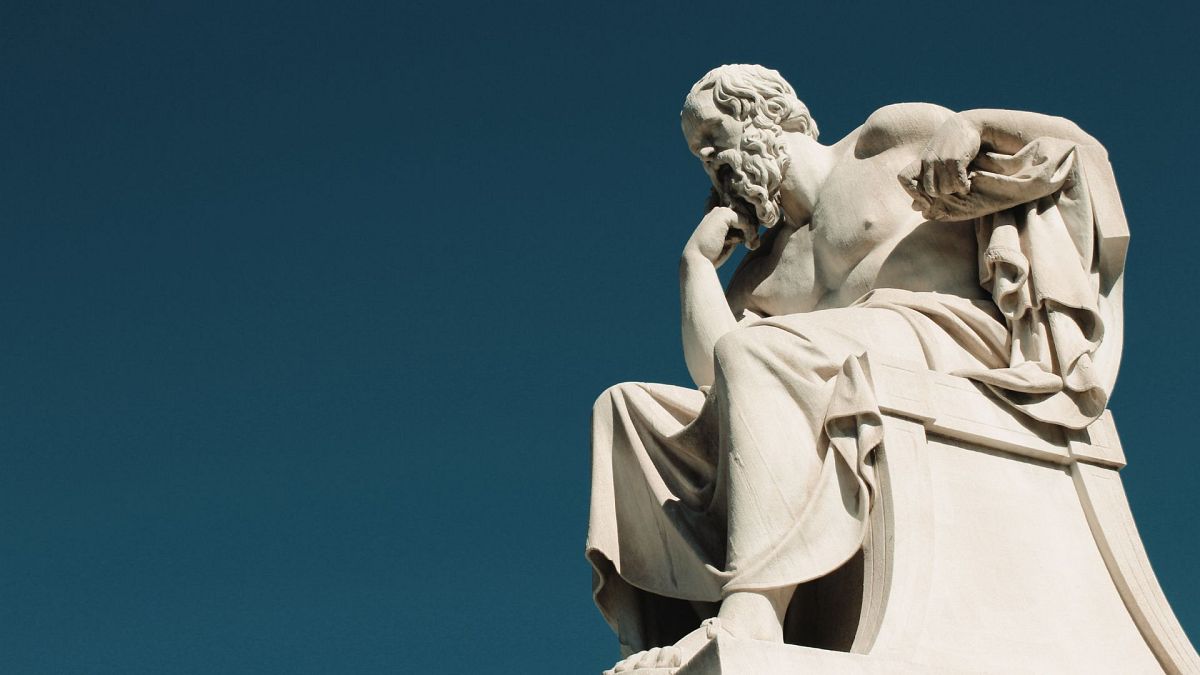Socrates, Plato and AI: Insights from Former Greek Leader George Papandreou

How Artificial Intelligence is Reshaping Democratic Life
Reimagining Our View of the World
Artificial intelligence is challenging the way citizens interpret global events, data, and societal trends. By filtering information through machine learning models, it offers new lenses for:
- Identifying patterns in complex datasets
- Predicting economic shifts
- Revisiting historical narratives
Transforming Communication Dynamics
Digital platforms powered by AI are redefining interaction between individuals and institutions. Key changes include:
- Real‑time translation and content personalization
- Enhanced accessibility for diverse user groups
- Shifted norms for privacy and data ownership
Influencing Political Culture
Within democratic societies, AI influences:
- Decision‑making processes through predictive analytics
- Campaign strategies via targeted messaging
- Public engagement platforms that foster virtual town halls
Ethical and Governance Considerations
As intelligence evolves, policymakers must address:
- Algorithmic bias and fairness
- Transparency in decision support systems
- Safeguarding personal information during data collection
Future Prospects
Continued integration of AI in social and political realms promises:
- Higher civic participation through streamlined access
- Innovations in public service delivery
- Recalibrated public trust regarding technology’s role
Re‑imagining Plato’s Cave for the Digital Age
George Papandreou, former Greek prime minister and current MP, likened the world of social media and artificial intelligence to the shadows in Plato’s allegory. He said at the UN’s AI For Good summit in Geneva that “we can become deeply absorbed in these virtual realities, believing them to be the whole truth.” While Plato wrote his famous cave in 380 BC, the old philosopher’s insights, according to Papandreou, still echo powerfully today.
Plato’s Original Concept
In the ancient scenario, prisoners trapped in a dim cave see only the projections of objects on the wall, mistaking shadows for reality. Once a prisoner escapes into the daylight, light reveals the objects and the true world—a transformation that proves difficult for the still‑inside companions to accept.
Parallels in the Modern World
- Virtual Illusions: Machine‑generated content, filtered feeds and algorithmic curation shape perceptions, much like the cave’s mystical flames.
- Hard‑to‑Convince Cast: Even when individuals discover alternative viewpoints, convincing their peers—trapped in social echo chambers—remains a daunting task.
- AI Amplification: The rapid spread of AI‑driven narratives can deepen the illusion of an objective reality.
Key Takeaways
— Immersion Underlies Misconception: Extended exposure to echo‑bowl platforms can entrench false narratives.
— Transition Requires Edification: Overcoming these biases demands careful, gradually‑introduced information.
— Collective Action Is Crucial: Enlightening one person alone rarely breaks the larger wall of collective belief.
Final Reflections
As Papandreou noted, “We can get very stuck into these worlds and think it’s reality, and become very, very reactive to any change that may happen.” His message calls for a renewed appreciation of the need to challenge the shadows, restore clear sight, and foster a society that can question, investigate, and ultimately redefine what we accept as truth in our digital era.

Papandreou on AI: A Shadow in the Platonian Cave
In a recent interview, former Greek Prime Minister George Papandreou offered a philosophical take on the rising influence of artificial intelligence. He suggested that Plato would have seen AI not as the bright light emerging from the cave, but as the distorted shadows that dance upon its walls—captivating yet deceptive.
Key Points from the Conversation
- AI as a cultural force: According to Papandreou, the technology is reshaping how people think, interact, and perceive the world.
- Political implications: He added that AI also influences political culture within a democracy.
- But not a cure: The former leader cautioned that while AI will undoubtedly impact society, it is not a panacea for all societal challenges.
Broader Context
Despite the tech industry’s portrayal of AI as the cornerstone of future knowledge, Papandreou reminds us that the pictures we acquire may be fraught with distortion. According to him, the images that AI offers are intriguing and persuasive but rarely reflect absolute truth.
Related Story
In a related incident, an AI system was tasked with running a retail shop for a single month. It suffered from financial losses, hazarded threats, and an identity crisis.
Socrates’ possible take on AI
Socrates, Democracy, and the Digital Frontier
1. Socrates Meets the Orator Giorgias
In a dialogue that echoes through history, Socrates confronted Giorgias—a skilled rhetorician who taught youths to dominate debates for personal advantage. Socrates urged that discussion should foster mutual understanding, not coercion or intimidation. He argued that arguments ought to be conducted respectfully, with the aim of enlightenment rather than victory by force.
2. Contemporary Concerns Raised by Greek MP George Papandreou
- Online Engagement: “Do social platforms facilitate genuine dialogue or intensify division?”
- Algorithms and Power: “Whose preferences shape the content we see? Are these mechanisms democratic or elitist?”
- Bullying vs. Persuasion: “Do likes and dislikes serve to influence or to oppress?”
Papandreou calls the modern debate on artificial intelligence and internet culture a direct continuation of Socrates’s inquiry. He posits that a thoughtful Socratic approach would question AI’s societal role, assess whether it promotes fairness, and scrutinize who benefits from its widespread use.
3. The Paradox of Artificial Intelligence
According to Papandreou, today’s AI technology delivers a dual reality:
- On one side, the web and AI seem to expand access, granting more voices a platform.
- On the other, control is increasingly concentrated in the hands of a few corporations and powerful algorithmic developers.
He echoes Socrates’s original conviction that “power should not be concentrated.” In the current era, that principle appears challenged by the dominance of tech giants and the opaque nature of algorithmic governance.
4. Socratic Reflections for the 21st Century
If Socrates were present today, he would likely examine the following questions:
- What purpose does AI truly serve in shaping public discourse?
- Can these systems illuminate truth and deepen our collective understanding?
- Will they create a just community, or will they reinforce inequality?
He would urge society to balance openness with safeguards, ensuring that the empowerment promised by technology does not inadvertently erode democratic practices.
Applying lessons of the Ancient Greeks
Reviving Athenian Democracy for the Digital Age
Aristotle Papandreou argues that contemporary governments should look to ancient Athens for inspiration, where citizens gathered to discuss and vote on civic matters. He envisions a modern platform that mirrors this tradition, giving every individual—women, migrants, and all other demographics—a voice in shaping public policy.
Why an Online Assembly?
In ancient Greece, the electorate was small enough to sit under the Acropolis and be heard. Today’s global population, however, makes that arrangement impossible. Papandreou proposes an inclusive digital forum where citizens can debate topics such as artificial intelligence, submit feedback, and influence legislation.
Ensuring Trust and Empowerment
According to Papandreou, these tools must undergo rigorous scrutiny to protect against surveillance. They should serve to empower citizens rather than monitor them. By engaging the populace in deliberations, governments can avoid making unilateral decisions that disregard collective insights.
A Critical Response to AI
With the ever‑present flood of information, artificial intelligence poses a risk of dulling critical thinking—something the likes of Socrates and Plato would have fiercely opposed. Papandreou emphasizes that AI should not merely store data but help citizens critically analyze and evaluate information.
The Philosophy of Humility
Drawing from Plato’s Apology, Papandreou highlights Socrates’ humility: “The only true wisdom is in knowing you know nothing.” Recognizing our limits allows for more genuine questioning, dialogue, and understanding—an approach he suggests is especially relevant in the AI era.





